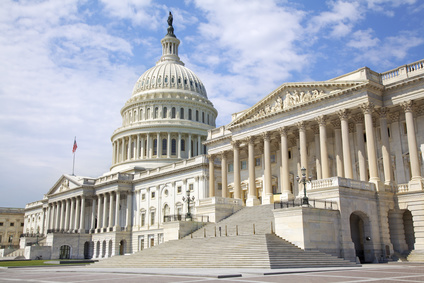In July of 2015 the Federal Communications Commission handed down an order that unreasonably expanded the reach of the 1991 Telephone Consumer Protection Act, exposing any business using a telephone to the risk of TCPA liability. A decision from the United States Court of Appeals for the District of Columbia in ACA International v. FCC, et al. serves to undo some of the damage caused by the FCC’s order. Among the restrictions provided for by the TCPA, it was those portions of the Act which prohibited the use of an “automatic telephone dialing system” that were adversely impacted by the 2015 order.…
Posts published by “Donald Maurice”
Donald Maurice provides counsel to the financial services industry, successfully litigating matters in the state and federal courts in individual and class actions. He has successfully argued before the Third, Fourth and Eighth Circuit U.S. Courts of Appeals, and has represented the financial services industry before several courts including as counsel for amicus curiae before the United States Supreme Court. He counsels clients in regulatory actions before the CFPB, and other federal and state regulators and in the development and testing of debt collection compliance systems. Don is peer-rated AV by Martindale-Hubbell, the worldwide guide to lawyers. In addition to being a frequent speaker and author on consumer financial services law, he serves as outside counsel to RMA International, on the governing Board of Regents of the American College of Consumer Financial Services Lawyers, and on the New York City Bar Association's Consumer Affairs Committee. From 2014 to 2017, he chaired the ABA's Bankruptcy and Debt Collection Subcommittee. For more information, see https://mauricewutscher.com/attorneys/donald-maurice/
A recent decision from a trial court sitting in Illinois calls into question whether debt collectors can rely on a widely used disclosure when collecting debt that may be subject to an expired limitations period. A copy of the opinion in Richardson v. LVNV Funding, LLC is available at: Link to Opinion. In 2012 the Federal Trade Commission and Asset Acceptance, LLC entered into a consent decree to resolve an enforcement action that included allegations that Asset’s debt collection activities violated the federal Fair Debt Collection Practices Act. The consent decree provided that when collecting “time-barred” debt not subject to credit reporting,…
The future of federal rules covering debt collection has been thrown into doubt amid the leadership change at the Consumer Financial Protection Bureau. In one of his first actions since taking the helm of the CFPB as acting director, Mick Mulvaney announced a halt on all Bureau rulemaking, reported Reuters. It has been more than four years since the CFPB announced plans to propose the first-ever rules regulating debt collectors subject to the federal Fair Debt Collection Practices Act. Last year it issued an outline of what those rules might look like. The Bureau had indicated earlier this year that…
A recent decision from the Third Circuit Court of Appeals examines both the provision of consent under the federal Telephone Consumer Protection Act (TCPA) and the bona fide error defense for debt collectors under the federal Fair Debt Collection Practices Act (FDCPA). The decision has dire implications for debt collectors, creditors and any commercial enterprise using telephone technology and QR codes in communicating with customers. A copy of the decision in Daubert v. NRA Group, LLC is available at: Link to Opinion. First up is the TCPA. The trial court ruled that the collection agency violated the TCPA when it used…
With its unanimous ruling yesterday that a debt buyer is not a “debt collector” under at least one reading of the federal Fair Debt Collection Practices Act, the U.S. Supreme Court offered some clarity to the financial services industry seeking to assess debt purchaser FDCPA liability. It did, however, refuse to address an alternative interpretation that will likely be used in an attempt to end-run the ruling. The decision in Henson v. Santander Consumer USA Inc. is available at: Link to Opinion. Debt Collector Must Be Collecting for ‘Another’ Santander Consumer USA Inc. acquired defaulted loans from CitiFinancial Auto and then…
A purchaser of a defaulted debt who then seeks to collect the debt for itself is not a “debt collector” subject to the federal Fair Debt Collection Practices Act under an opinion delivered today by the U.S. Supreme Court. The issue before the Court was whether a purchaser of defaulted debt meets the FDCPA’s definition of a “debt collector” as one who “regularly collects or attempts to collect . . . debts owed or due . . . another.” 15 U. S. C. §1692a(6). Here, Santander Consumer USA Inc. acquired defaulted loans from CitiFinancial Auto and then began to collect…
A debt buying company’s letter to collect a debt subject to the defense of an expired limitations period was found to violate the federal Fair Debt Collection Practices Act because it failed to disclose that 1) a payment or promise can revive the limitations period; and, 2) the law limits or prohibits the debt collector from suing to collect the debt. The U.S. Court of Appeals for the Seventh Circuit reached this decision even though the letter stated: “Because of the age of your debt, we will not sue you for it and we will not report it to any…
The Kentucky Supreme Court recently ruled that a debt buying company may not charge or collect statutory interest under section 360.010 of the Kentucky Revised Statutes on an account it acquired after it was charged off by the original creditor. Carol Harrell’s credit card account was charged off by the original creditor on Jan. 18, 2011 and was sold to a debt buying company in November of the same year. In a collection lawsuit brought in April 2012, the debt buying company sought judgment for the charged-off balance plus statutory interest from the date of charge off. In response, Harrell…
The Ninth Circuit Court of Appeals rejected a class action settlement as “worthless” for absent class members in a recent federal Fair Debt Collection Practices Act case. The decision represents another addition to the growing list of FDCPA and other consumer-related class action settlements facing tough scrutiny where absent class members receive minimal or no monetary relief in proportion to their release of future claims, while class representatives and their counsel receive handsome rewards. A copy of the opinion in Koby v. ARS National Services, Inc. is available at: Link to Opinion. The case arose from a voicemail message seeking…
The U.S. Supreme Court heard oral argument Tuesday in Midland Funding v. Johnson. A primary issue before the Court is whether the federal Fair Debt Collection Practices Act is violated by the filing in a Chapter 13 bankruptcy case of a proof of claim representing a debt subject to an expired limitations period. The case originated from the Eleventh Circuit Court of Appeals, which along with its earlier decision in Crawford v. LVNV, held the FDCPA is violated in those instances. Every other Circuit Court of Appeals has since found otherwise. The oral argument indicated that at least six justices…
The Consumer Financial Protection Bureau narrowly escaped a constitutional challenge today in a ruling handed down from the United States Court of Appeals for the District of Columbia Circuit. Although the court found the CFPB's structure is unconstitutional, the defect, according to the court’s opinion, did not warrant its dissolution.









